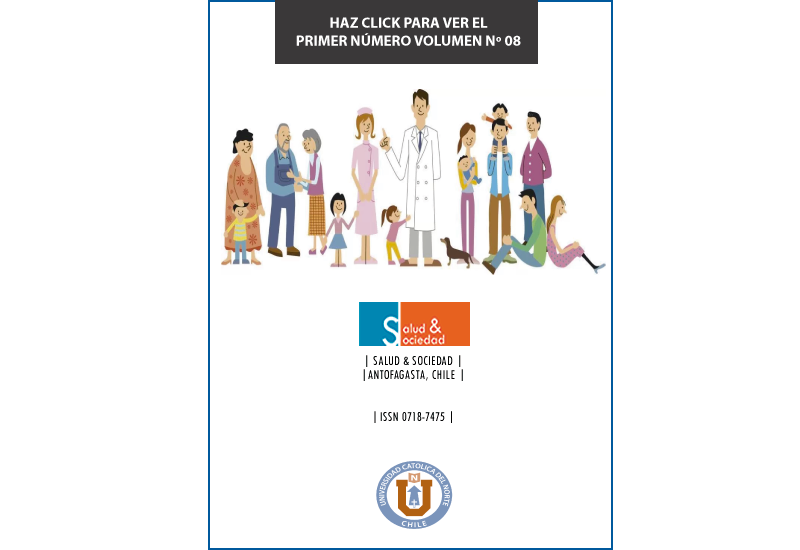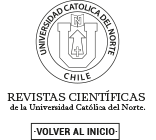Efficacy of an enpowerment program in retired mexican older adults’ self-care ability
DOI:
https://doi.org/10.22199/S07187475.2017.0001.00001Keywords:
Empowerment, Self-care, Older adults, Retired citizensAbstract
INTRODUCTION: Changes in health conditions of older adults is a process affected by issues such as economy, politics, culture,demography, technology, biology, society, and education among others, as well as institutional programs focused on containment and control risk factors of different morbidities. OBJECTIVE: To analyze the impact and efficacy of an empowerment program in retired older adults’ self-care ability. METHOD: The sample was composed of 250 retired Mexican older adults from Hidalgo with an age rank of 69 and access to health services. Seven tests were applied: Barthel Index, TINETTI Test, Folstein’s MMSE, the Yesavage Test, Older Adult’s Ability and Perception of Self-Care Test, Mini Nutritional Assessment Scale, and a self-report of the Health Empowerment Scale. Self-care perception, functional independence, falling risk, cognitive state, depression symptoms,nutritional status, and empowerment for self-care were compared at the beginning and at the end of the program. RESULTS: Meaningful differences (p < 0.05) in functional, depressive, and nutritional states were observed. Falling risk decreased whereas cognitive state remained unchanged. Self-care ability perception and empowerment also showed substantial differences. CONCLUSIONS: These findings show that appropriate training and empowerment of self-care actions may impact the quality of life positively.
Downloads
References
Acuña, Guevara, Flores (2014). El empoderamiento como estrategia de salud para las comunidades. Revista Cubana de Salud Pública, 40(3), 353-36.
Anderson, R., y Funnell, M. (2005). The art of empowerment: stories and strategies for diabetes educators. New York: American Diabetes Association.
Backman, K; y Hentinen, M. (1999). Model for the self-care of home-dwelling elderly. Journal of Advanced Nursing, 30, 564–572.
Barthel, D., Mahoney, F. (1965). Funtional evaluation: Barthel Index. Md State Med J,14, 615.
Beswick AD, Rees K, Dieppe P, (2008). Complex interventions to improve physical function and maintain independent living in elderly people: a systematic review and meta-analysis. Lancet, 371, 725–35.
Cattaneo, L y Chapman, R. (2010). The process of empowerment: a model for use in research and practice. Am Psychol, 65(7), 646–659.
CENETEC. Valoración Geronto-Geriátrica Integral en el Adulto Mayor Ambulatorio. (Fecha de consulta: 6 de febrero de 2016). Disponible en: http://www.cenetec.salud.gob.mx/descargas/gpc/CatalogoMaestro/491_GPC_valoracixn_geronto-geriatrica/IMSS-491-11-GER_Valoracixn_geronto_geriatrica.pdf.
Gamble, A. (2000). Manual de prevención y autocuidado para las personas adultas mayores. México, Gobierno del Distrito Federal. (Fecha de consulta: 10 de enero de 2016). Disponible en: http://www.sideso.df.gob.mx/documentos/manual_de_prevencion_y_autocuidado_para_las_personas_adultas_mayores.pdf.
García, M.J., Tobías, J. (2001). Prevalencia de depresión en mayores de 65 años. Perfil del anciano de riesgo. Atención primaria, 27, 484-488.
Guigoz, Y., Lauque, S., Vellas, B.J. (2002).Identifying the elderly at risk for malnutrition. The Mini Nutritional Assessment. Clin Geriatr Med.,18(4),737-757.
Folstein, MF., Folstein, SE., McHugh, PR. (1975). Mini-mental state: A practical method for grading the cognitive state of patients for the clinician. J Psychiatry Res, 12(3), 189- 198.
Johnson, TM., Kincade, JE., Bernard, SL., Busby-Whitehead, J., Defriese, GH.(2000). Self-care practices used by older men and women to manage urinary incontinence: Results from the national follow-up survey on self-care and aging. Journal of the American Geriatric Society, 48(8), 894-902.
Hernández, R., Fernández, C., y Baptista, P. (2006). Metodología de la investigación. México: Mc GrawHill Interamericana Editores.
Laverack, G. (2011). Improving health outcomes through community empowerment: a review of the literature. J Health Popul Nutrit, 24(1),113–120.
Millán-Méndez, IE. (2010). Evaluación de la capacidad y percepción de autocuidado del adulto mayor en la comunidad. Revista cubana de enfermería, 26(4), 202-234.
OPS. (2003). Conjunto de acciones para la reducción multifactorial de enfermedades no transmisibles (CARMEN). Habana, Cuba: Organización Panamericana de la Salud. (Fecha de consulta: 15 de enero de 2016). Disponible en: http://www.paho.org/hq/index.php?option=com_docman&task=doc_view&gid=16166&Itemid=.
Organización Mundial de la Salud. (2013). Envejecimiento y ciclo de la vida. Ginebra, Suiza: OMS. (Fecha de consulta: 3 de mayo de 2016).Disponible en: http://www.who.int/ageing/about/facts/es/.
Osorio, P., Torrejón, M., Meersohn, C. y Anigstein, M. (2011). Comprensión de la calidad de vida en personas mayores semivalentes en chile, Salud & Sociedad, 2(2), 203-217.
Painepán, B; y Kühne, W. (2012). Sobrecarga, afrontamiento y salud en cuidadoras de pacientes con demencia tipo Alzheimer. Summa Psicológica, 9(1), 5-14.
Salcedo-Rocha, A.L., García de Alba, J., Frayre-Torres, M.J., Lopez-Coutino, B.(2008). Género y control de diabetes mellitus 2 en pacientes del primer nivel de atención. Revista Médica del Instituto Mexicano del Seguro Social, 46 (1),73-81.
Secretaria de salud. Reglamento de la ley general de salud en materia de investigación para la salud. (1987). México (Fecha de consulta: 6 de mayo de 2016) Disponible en: http://www.salud.gob.mx/unidades/cdi/nom/compi/rlgsmis.html.
Söderhamn, O. (2000). Self-care activity as a structure: A phenomenological approach. Scandinavian Journal of Occupational Therapy, 7(4),183-189.
Söderhamn, O. (2013). Phenomenological perspectives on self-care in aging. Clinical Interventions in Aging, 8, 605–608.
Schulman-Green D, Jaser S, Martin F, Alonzo A, Grey M, McCorkle, R. (2012). Processes of self-management in chronic illness. J Nurs Scholarsh, 44(2), 136–144.
Serrani-Azcurra, D. (2014). Elders Health Empowerment Scale. Spanish adaptation and psychometric analysis.Colombia Médica, 45(4), 179–185.
Tinetti, E. (1986). Performance-oriented assessment of mobility problems in elderly patients. Journal of the American Geriatric Society, 34(2), 119-126.
Villaseñor-Cabrera, T., Guardia-Olmos, J., Jiménez-Maldonado, M., Rizo-Curiel, G., Peró, M. (2010). Sensitivity and specificity of the Mini-Mental State Examination in the Mexican population. Quality & Quantity, 44(6), 1105-1112.
Yesavage, A., Brink, L., Rose, L., Lum, O., Huang, V., Adey, B., Leirer, O. (1983). Development and validation of a geriatric depression screening scale: A preliminary report. Journal of Psychiatric Research, 17, 37-49.
Downloads
Published
Issue
Section
License
Los autores continúan como propietarios de sus trabajos, y pueden volver a publicar sus artículos en otro medio sin tener que solicitar autorización, siempre y cuando indiquen que el trabajo fue publicado originariamente en Revista Salud & Sociedad (ISSNe:0718-7475).



_(1).png)





